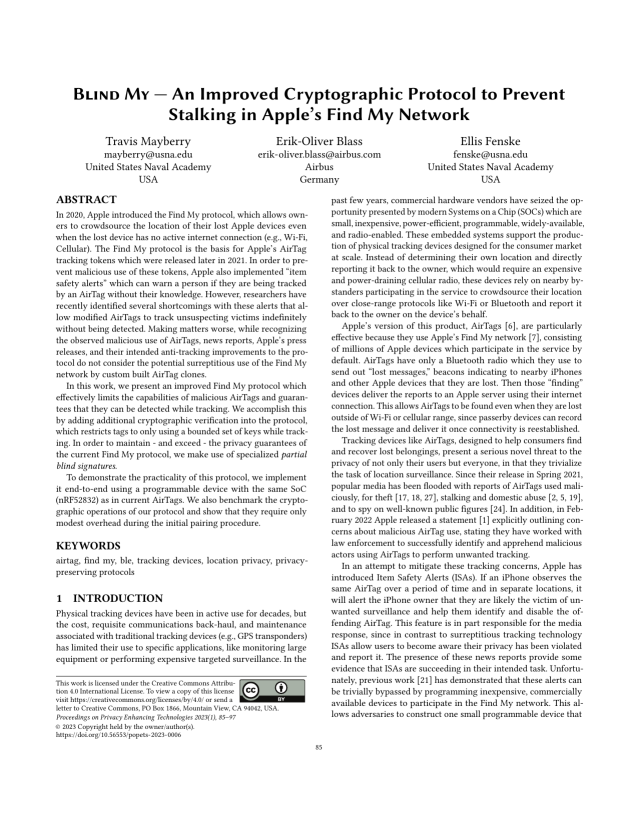Blind My - An Improved Cryptographic Protocol to Prevent Stalking in Apple's Find My Network
Authors: Travis Mayberry (United States Naval Academy), Erik-Oliver Blass (Airbus), Ellis Fenske (US Naval Academy)
Volume: 2023
Issue: 1
Pages: 85–97
DOI: https://doi.org/10.56553/popets-2023-0006
Abstract: In 2020, Apple introduced the Find My protocol, which allows owners to crowdsource the location of their lost Apple devices even when the lost device has no active internet connection (e.g., Wi-Fi, Cellular). The Find My protocol is the basis for Apple's AirTag tracking tokens which were released later in 2021. In order to prevent malicious use of these tokens, Apple also implemented ``item safety alerts'' which can warn a person if they are being tracked by an AirTag without their knowledge. However, researchers have recently identified several shortcomings with these alerts that allow modified AirTags to track unsuspecting victims indefinitely without being detected. Making matters worse, while recognizing the observed malicious use of AirTags, news reports, Apple's press releases, and their intended anti-tracking improvements to the protocol do not consider the potential surreptitious use of the Find My network by custom built AirTag clones.
In this work, we present an improved Find My protocol which effectively limits the capabilities of malicious AirTags and guarantees that they can be detected while tracking. We accomplish this by adding additional cryptographic verification into the protocol, which restricts tags to only using a bounded set of keys while tracking. In order to maintain - and exceed - the privacy guarantees of the current Find My protocol, we make use of specialized partial blind signatures.
To demonstrate the practicality of this protocol, we implement it end-to-end using a programmable device with the same SoC (nRF52832) as in current AirTags. We also benchmark the cryptographic operations of our protocol and show that they require only modest overhead during the initial pairing procedure.
Keywords: location privacy, cryptographic protocols, AirTags
Copyright in PoPETs articles are held by their authors. This article is published under a Creative Commons Attribution 4.0 license.

